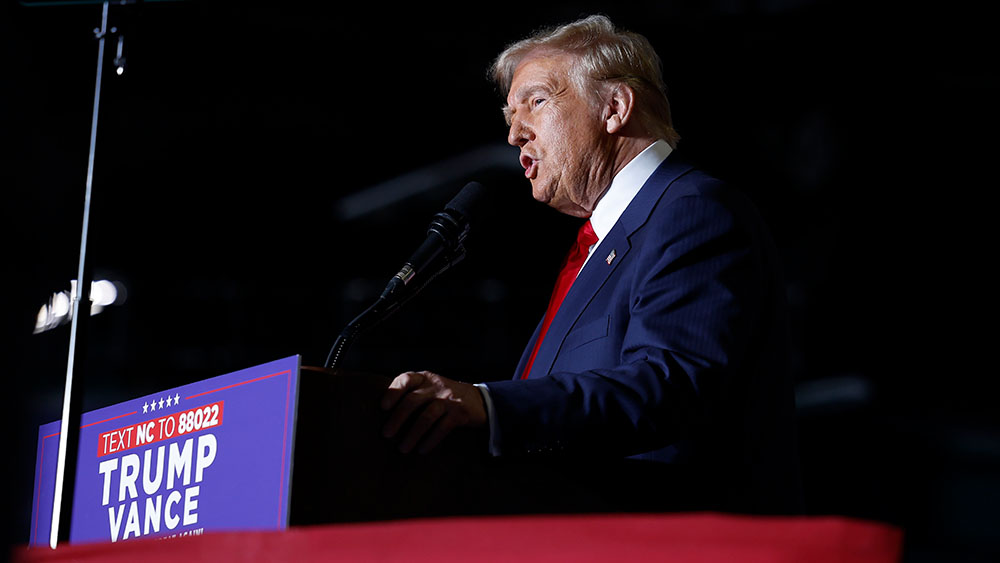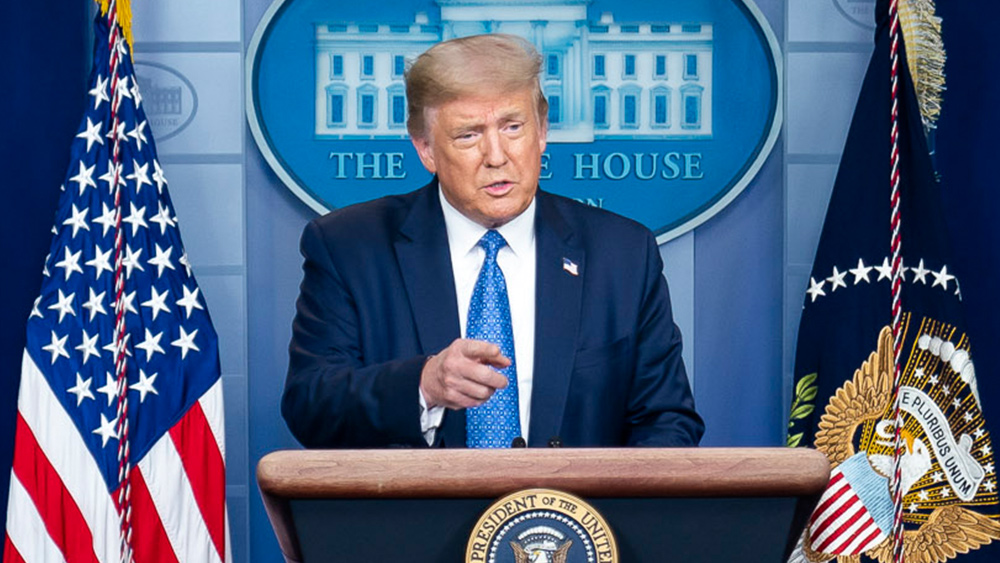“All options on the table”: Defense Secretary Hegseth signals potential military strikes against Mexican cartels
02/06/2025 / By Willow Tohi

- Defense Secretary Pete Hegseth declared military strikes against Mexican drug cartels a viable option under the Trump administration’s border security agenda.
- The Trump administration has designated Mexican cartels as foreign terrorist organizations, expanding legal authority to impose sanctions, travel restrictions and military action.
- The shift in policy marks a dramatic reorientation of U.S. military priorities towards homeland defense on the southern border.
- The cartels are viewed as existential threats to U.S. sovereignty and public safety, responsible for drug trafficking, human trafficking, arms smuggling and violent attacks on U.S. Border Patrol agents.
- The Trump administration’s approach stands in contrast to the Biden era’s focus on diplomatic engagement, with direct enforcement and deterrence now the primary focus.
In a bold and unprecedented statement, Defense Secretary Pete Hegseth has declared that military strikes against Mexican drug cartels remain a viable option under the Trump administration’s aggressive border security agenda. Speaking on Fox News’ “Fox & Friends” on Jan. 31, Hegseth emphasized that “all options will be on the table” if cartels continue to target Americans and flood the U.S. with deadly drugs like fentanyl.
This announcement comes as the Trump administration ramps up efforts to combat cartel violence and drug trafficking, marking a significant shift in U.S. border policy. The administration’s willingness to consider military action against cartels — designated as foreign terrorist organizations — has sparked both support and concern, raising questions about the future of U.S.-Mexico relations and the broader implications for national security.
A new era of border defense
Hegseth’s comments reflect a dramatic reorientation of U.S. military priorities. “We’re finally securing our border,” he said. “We’ve been securing other people’s borders for a very long time. The military is orienting, shifting toward an understanding of homeland defense on our sovereign territorial border. That is something we will do and do robustly.”
This shift comes after President Donald Trump signed an executive order on Jan. 20, designating Mexican cartels as foreign terrorist organizations. The move grants the administration expanded legal authority to impose sanctions, travel restrictions and even military action against these groups.
The administration’s approach stands in stark contrast to the Biden era, which relied heavily on diplomatic engagement with Mexico to address cartel activity. Under Trump, the focus has shifted to direct enforcement and deterrence, with 1,600 active-duty troops already deployed to the southern border to assist in barrier construction, surveillance and intelligence operations.
The cartel threat: A national security crisis
The cartels’ influence extends far beyond drug trafficking. These organizations are responsible for smuggling fentanyl — a synthetic opioid responsible for tens of thousands of American deaths annually — as well as human trafficking, arms smuggling and violent attacks on U.S. Border Patrol agents.
During the “Fox & Friends” interview, host Brian Kilmeade pressed Hegseth on the administration’s willingness to take decisive action. “If we find that they continue to fire at Border Control and they continue to put fentanyl into our country, as a secretary of defense, are you permitted now to go after them in Mexico or where they are?” Kilmeade asked.
Hegseth’s response was unequivocal: “Brian, I don’t want to get ahead of the president and I won’t. That’s ultimately going to be his decision. But let me be clear. All options will be on the table if we’re dealing with what are designated to be foreign terrorist organizations who are specifically targeting Americans on our border.”
This statement underscores the administration’s view of cartels not merely as criminal enterprises but as existential threats to U.S. sovereignty and public safety.
Historical context: A precedent for action
The idea of using military force against cartels is not without precedent. In the 1980s and 1990s, the U.S. military played a key role in combating drug trafficking in Latin America through operations like Plan Colombia, which targeted cocaine production and distribution networks. However, direct military action within Mexico would represent a significant escalation, given the country’s sovereignty and the potential for diplomatic fallout.
Michael O’Hanlon, director of research in the Foreign Policy Program at the Brookings Institution, cautioned against overconfidence in such an approach. “Everything I know historically about trying to attack these kinds of targets with airpower or Special Forces makes me wary that we can be successful,” he said during a recent podcast.
Mexico’s President Claudia Sheinbaum has also emphasized the need for cooperation rather than unilateral action. “We all want to fight the drug cartels,” she said last week. “The U.S. in their territory, us in our territory.”
The road ahead: Risks and rewards
While the Trump administration has not yet taken direct military action inside Mexico, Hegseth’s comments suggest that the possibility is very much alive. “Should there be other options necessary to prevent the cartels from continuing to pour people, gangs, drugs and violence into our country—we will take that on,” he stated.
The risks of such an approach are significant. Military strikes could strain U.S.-Mexico relations, provoke retaliation from cartels and endanger civilians on both sides of the border. However, proponents argue that decisive action is necessary to stem the flow of drugs and protect American lives.
As the administration continues to weigh its options, one thing is clear: the era of passive border enforcement is over. The Trump administration is signaling a new, more assertive approach to national security—one that prioritizes American sovereignty and safety above all else.
In the words of Hegseth, “Ultimately, we will hold nothing back to secure the American people.” Whether this means military strikes, enhanced border defenses, or a combination of both, the coming months will undoubtedly shape the future of U.S. border policy and its relationship with Mexico.
For now, the message to the cartels is unmistakable: the United States is prepared to take whatever steps are necessary to protect its citizens and secure its borders. The question is not whether action will be taken, but how far the administration is willing to go.
Sources include:
Submit a correction >>
Tagged Under:
big government, Border Patrol, border security, Dangerous, Donald Trump, drug cartels, drug trafficking, invasion usa, Mexico, military strikes, national defense, national security, Open border, Open Borders, Pete Hegseth, violence
This article may contain statements that reflect the opinion of the author
RECENT NEWS & ARTICLES
Trump.News is a fact-based public education website published by Trump News Features, LLC.
All content copyright © 2018 by Trump News Features, LLC.
Contact Us with Tips or Corrections
All trademarks, registered trademarks and servicemarks mentioned on this site are the property of their respective owners.




















